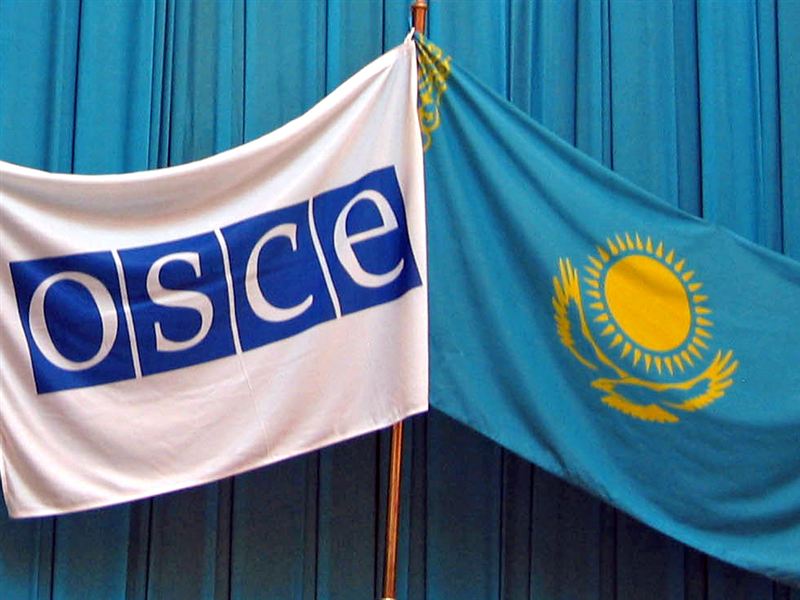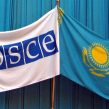
Kazakhstan’s Constitutional Referendum: Western Questions, Kazakh Answers (Part One)
Publication: Eurasia Daily Monitor Volume: 8 Issue: 19
By:

Kazakhstan’s term as the chairman of the Organization for Security and Cooperation in Europe (OSCE) had not quite ended, when a civic initiative group proposed in mid-December 2010 to prolong President Nursultan Nazarbayev’s term as head of state until 2020, by means of a constitutional referendum. The effect would be to skip the presidential elections that are due in 2012 and 2017.
The initiative group, duly registered by the Central Electoral Commission, collected more than five million signatures, amounting to 55 percent of the country’s eligible voters, in favor of that proposition by early January (the law requires 200,000 signatures for calling a referendum). Following the letter of the law, Kazakhstan’s parliament endorsed the initiative and requested that Nazarbayev should call a referendum. Nazarbayev exercised his right to veto the parliament’s decision; but on January 14, the bicameral parliament overrode the president’s veto.
On January 21, Nazarbayev held a special consultative session with parliamentarians, senior government officials, cultural figures, and pro-government civic organizations’ leaders. The president cautiously weighed the merits of this initiative in his speech; while those assembled urged Nazarbayev, strongly and sometimes emotionally, to endorse the proposal and call the referendum. The president reserved his judgment for the time being. The Constitutional Council has one month to issue a decision on the matter (Kazinform, Khabar Television, January 20-22).
The United States and the European Union seem taken aback in their initial reactions. Western governments, all of which had endorsed Kazakhstan to chair the OSCE, and most of which had supported holding the OSCE Summit in December in Astana, now feel frustrated. Within the EU and OSCE, some suggest issuing a collective critical statement by the heads of state and government who had attended the OSCE’s Astana summit. The US ambassador to Kazakhstan, Richard Hoagland, made a strongly worded public demarche in mid-January, even as his tour of duty there was being cut off abruptly for transfer to another country. US officials are using strong lecturing language with warning undertones in their private discussions with Kazakh officials. In Brussels, the EU’s High Representative, Catherine Ashton, has publicly expressed “serious concern” and “serious reservations” while “strongly urging” Kazakhstan’s leadership to give up the constitutional referendum. The OSCE’s Office for Democratic Institutions and Human Rights (ODIHR), terming the proposed referendum “distressing” in the wake of the Astana summit, seconded Ashton’s call to cancel the referendum (press releases, January 13, 14, 20, 21).
From Kazakhstan’s own perspective, it is not easy to see why holding a referendum (particularly one already endorsed by more than half the electorate) should be regarded as undemocratic by Western governments. President Nazarbayev’s re-election margins from 1991 through the latest election in 2007, as well as his current overwhelming approval ratings, should in any case guarantee his smooth re-election in 2012 and beyond. Whether the process is plebiscitary de facto or plebiscitary de jure is not an entirely irrelevant issue, but clearly not an essential factor.
Again from Kazakhstan’s perspective, it seems hard to see the logic of Western warnings that relations with Kazakhstan would suffer serious damage if the referendum is held.
Kazakhstani officials proceed from a set of strategic interests that their country shares with the West. Those common interests focus on energy and raw material supplies, coalition operations in Afghanistan and the related logistical support, counter-terrorism and counter-narcotics efforts, ensuring the secular path of Muslim-majority Kazakhstan, and holding the triangular great-power balance in Central Asia. The government of Kazakhstan takes the position that close relations with the West, based on those strategic priorities, ought to continue in the mutual interests, irrespective of Kazakhstan’s internal decision on whether to hold its referendum or not.




